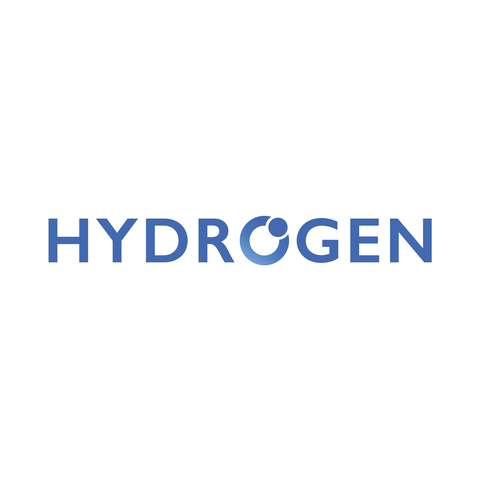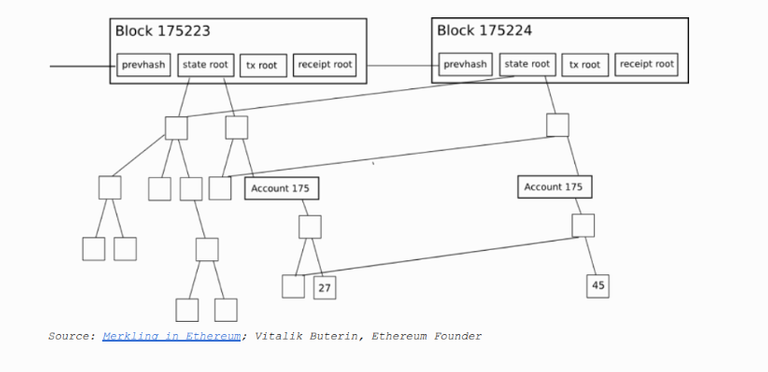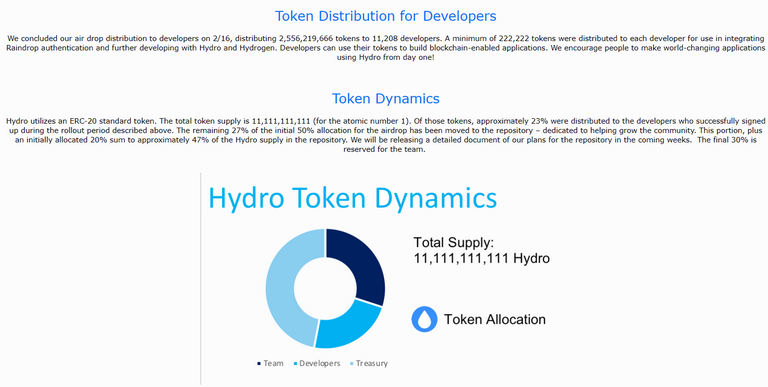
(húdōr, “water”)
Hydro enables new and existing private systems to seamlessly integrate and
leverage the immutable & transparent dynamics of a public blockchain to enhance
application and document security, identity management, transactions, and
artificial intelligence.
In this paper, a case will be made for private systems, such as APIs, to use
the Hydro public blockchain to enhance security through public authentication.
The proposed technology is called “Raindrop” - a transaction performed through
a smart contract that validates private system access publicly, and can
complement existing private authentication methods.
The technology is intended to provide additional security for sensitive financial data that is
increasingly at risk from hacking and breaches.
Initial implementation of the Hydro Raindrop is performed on the Hydrogen API
Platform. This modular set of APIs is available to enterprises and developers
globally to prototype, build, test, and deploy sophisticated financial
technology platforms and products.
The Hydro Raindrop will be made available to the world developer community as
open source software, to allow developers to integrate the Hydro Raindrop with
any REST API.
Hydro is implemented on the Ethereum network. Before providing more detail on
the project, it is important to understand some fundamental ideas about
blockchain and Ethereum.
Building on Ethereum
Much as apps like Snapchat were built with Swift and other tools offered on top
of the Apple iOS platform, so too can blockchain applications be built on top
of Ethereum. Snap Inc. didn’t need to build iOS, it used it as infrastructure
to launch a game-changing social media application.
Project Hydro is similar. It relies on the thousands of developers globally
that are working to make underlying blockchain technology faster, stronger, and
more efficient. Hydro leverages this constantly improving infrastructure by
developing product-focused interactions around blockchain technology that can
offer tangible benefits to financial services applications.
Merkle Trees
Merkle trees are used in distributed systems for efficient data verification.
They are efficient because they use hashes instead of full files. Hashes are
ways of encoding files that are much smaller than the actual file itself.
Every block header in Ethereum contains three Merkle Trees for Transactions,
Receipts, and States:

This makes it easy for a light client to get verifiable answers to queries,
such as:
● Does this account exist?
● What is the current balance?
● Has this transaction been included in a particular block?
● Has a particular event happened in this address today?
Smart Contracts
A key concept enabled by Ethereum and other blockchain-based networks is that
of smart contracts. These are self-executing blocks of code that multiple
parties can interact with, cutting out the need for trusted middlemen. Code in
a smart contract can be seen as similar to the legal clauses in a traditional
paper contract, but can also achieve much more expansive functionality.
Contracts can have rules, conditions, penalties for non-compliance, or can
kickstart other processes. When triggered, contracts execute as originally
stated at the time of deployment on the public chain, offering built-in
elements of immutability and decentralization.
The smart contract is a vital tool for building on the Ethereum infrastructure.
Core functionality of the Hydro blockchain layer is achieved via custom
contracts, as discussed later in this paper.
Ethereum Virtual Machine
The Ethereum Virtual Machine (EVM)
is the runtime environment for smartcontracts on Ethereum. The EVM helps to prevent Denial of Service (DoS)
attacks, ensures programs remain stateless, and enables communication that
cannot be interrupted. Actions on the EVM have costs associated with them,
called gas, which depend on the computational resources required. Every
transaction has a maximum amount of gas allotted to it, known as a gas limit.
If the gas consumed by a transaction reaches the limit, it will cease to
continue processing.

You can find more about Hydrogen (HYDRO) and the project here:
https://www.hydrogenplatform.com/
https://www.hydrogenplatform.com/hydro
as an invesment i can say this cryptocurrency have no hype at all, and none is talking about it, it is your call to invest on it or not, do your own research.
i posted this because i am always finding cryptocurrencies that none knows yet, before they explode.
Between Sat, Apr 7th 2018 - Sun, May 6th 2018, the price of Hydrogen ranged between $0.0011 and $0.0022, with a min/max of $0.0011 and $0.0032.
Its market cap ranged between $ 0.00 and $ 0.00, with a min/max of $ 0.00 and $ 0.00, a median of $ 0.00 and a 7 day moving average of $ 0.00.
The trading volume ranged between $ 42.24 K and $ 525.78 K, with a median of $ 245.22 K and a 7 day moving average of $ 119.13 K. source https://coincheckup.com/coins/hydrogen/charts

most of the post was copied from the original Hydrogen (HYDRO) web here: https://www.hydrogenplatform.com/hydro
you can check some more info from coingecko here: https://www.coingecko.com/en/coins/hydro